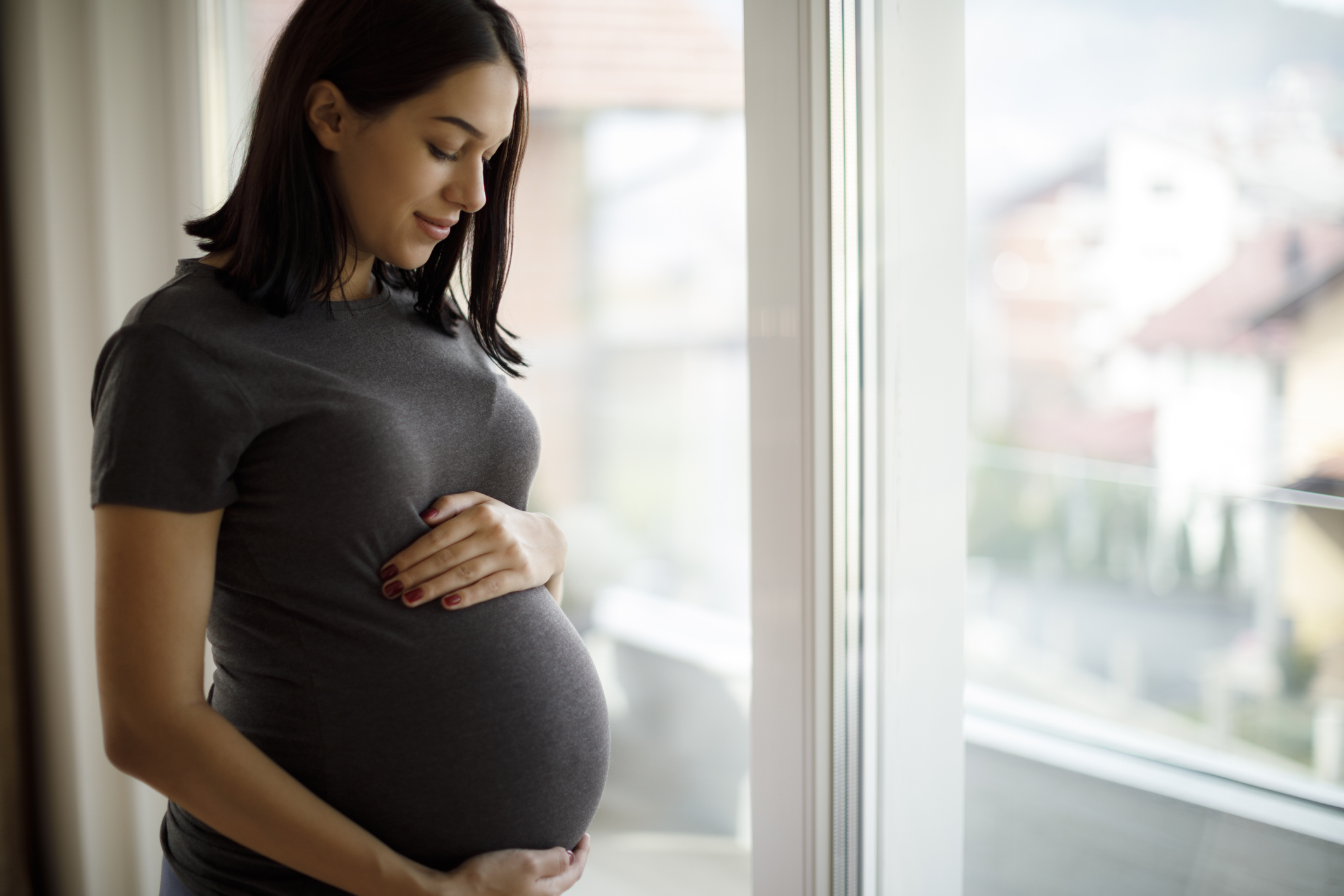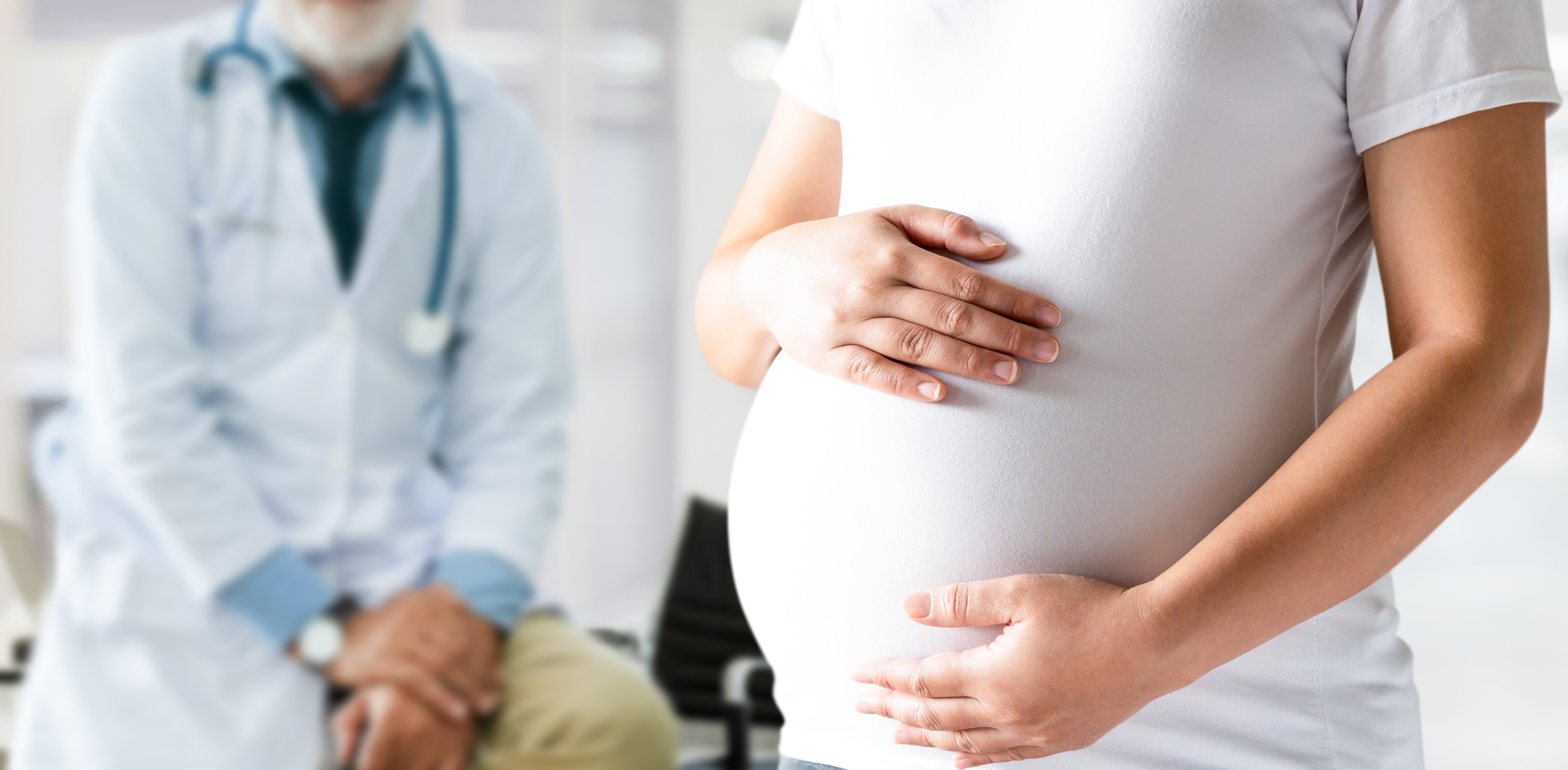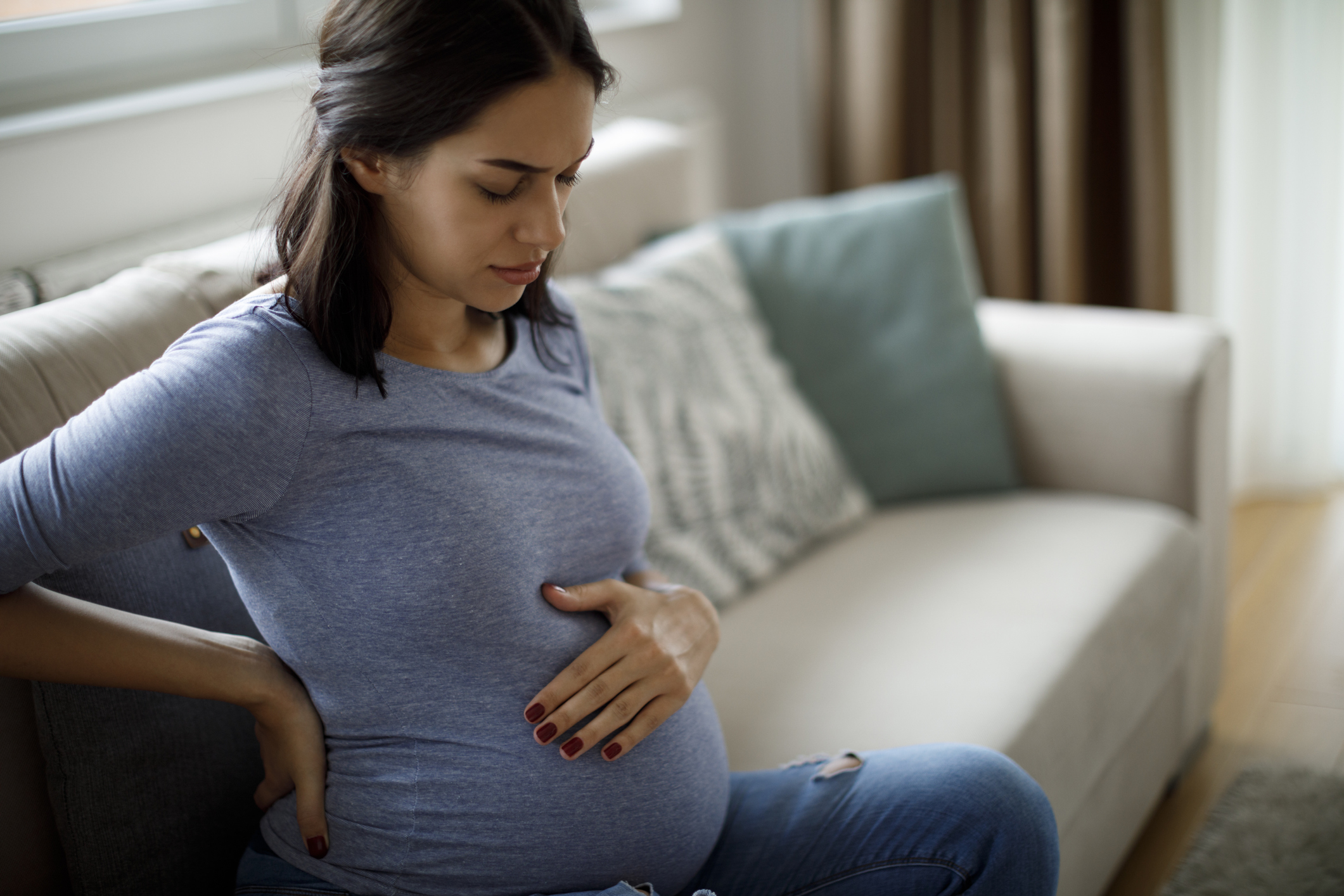
A few years ago, it was thought that even a sip of alcohol during pregnancy was a very bad thing. Fast-forward a bit, and these days, many doctors and midwives take a more laid-back approach to drinking alcohol while pregnant, especially during the later stages when babies' brains are developed. Some will even go as far as recommending a glass of wine here and there (maybe around one a week) to allow pregnant people to relax.
Of course, some doctors and midwives stick to the old-school advice, which is that alcohol should be completely avoided during pregnancy, even in small amounts. Those who advise against pregnant persons consuming alcohol are understandably worried about a new study that says more people are drinking while pregnant.
The study comes from the Centers for Disease Control and Prevention, and it found that around one in nine women reported drinking while pregnant. Of course, that doesn't mean they are drinking to excess, but it's still troubling for those who take a more strict approach.

It should definitely be noted that there are a lot of different schools of thought on drinking while pregnant. Some experts say that some alcohol is completely safe, while others shun it. Still, it's interesting to see that more pregnant people are drinking these days.

The new statistics show that about one in nine women are drinking some alcohol while pregnant. The study looked at drinking patterns that were broken down by trimester of pregnancy. It found that nearly 20% of women drank in their first trimester. But this rate dropped to 4.7% of respondents in the second and third trimesters.
Those statistics are interesting because they are almost the opposite of what we'd expect. Many women tend to be more comfortable having a glass of wine or a beer later in pregnancy but not in the early stages. That's because women often aren't feeling good enough to have a drink in the first trimester to begin with if they are experiencing morning sickness. But it could also be because once the baby is nearly full grown, people assume the risk of having an occasional drink is likely to be lower.
It definitely brings up some questions about the accuracy of the study and the reasons behind its results. Specifically, it's possible that the women who self-reported the drinks they consumed were accounting for the drinks they had before they even knew they were pregnant. Given that many women don't know they are pregnant until six or even eight weeks in, those first trimester drinks could be happening before a positive pregnancy test.

The study has some doctors concerned because fetal alcohol syndrome is a condition that can affect babies for a lifetime. We know that there are real risks that come with consuming alcohol while pregnant, so pregnant people still need to be careful. Dr. Jessica Shepherd, obstetrician-gynecologist at Baylor University Medical Center in Dallas, says, "Given that we live in a society that knows about the risks that come with drinking, it is alarming that this is a statistic."
Also, some OB-GYNs believe that these figures aren't accurate anyway and that self-reported drinking figures are an underestimate. That's because people tend to report drinking fewer alcoholic drinks than they actually consume, though it's hard to say if that would also be true for pregnant people, who are likely more aware of what they're putting in their bodies. Most pregnant people exercise caution with just about everything they eat and drink, knowing that their baby is going to be ingesting the same things.
There has also been some recent research that points to higher rates of miscarriage if even small amounts of alcohol are being consumed. A recent study by Dr. Katherine Hartmann at Vanderbilt University followed prepregnancy habits of thousands of women week by week, extending into their second trimester and tracking rates of miscarriages. The study found that even a rare drink in the first few weeks of pregnancy could be a danger.
"We were able to take into account the type of alcohol that they used, the intensity of their drinking, and week by week, what their self-reported exposure was," Dr. Hartmann explained.
Miscarriages are fairly common in the first trimester. About 15% to 20% of known pregnancies end in miscarriage. But far more pregnancies end in miscarriage before women even know they are expecting.

There is obviously a lot more research that needs to be done surrounding pregnancy and alcohol consumption. That's especially true not just because the research is not totally clear but because experts have such strong opinions that go against each other. Regardless of this new study, many doctors and midwives are likely to advise women to do what they are comfortable with.
The fact of the matter is, women have the right to their own body during pregnancy and always. We all need to know and understand true risks when it comes to pregnancy, but we also need to be able to feel in control of what we do and do not do. No one should feel shamed for having a glass of wine here and there, pregnant or not. It's just important that we all get the facts straight.
Either way, we'll definitely be following this research to stay up to date with the latest on the safety of alcohol consumption during pregnancy.




